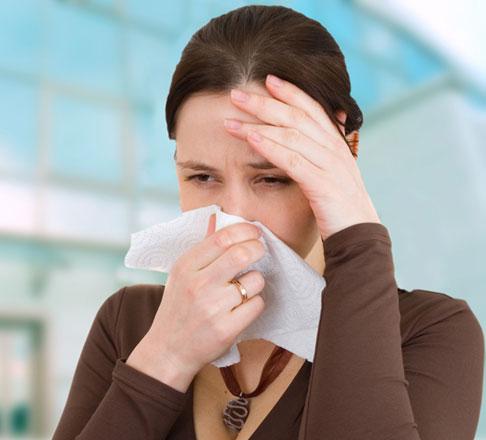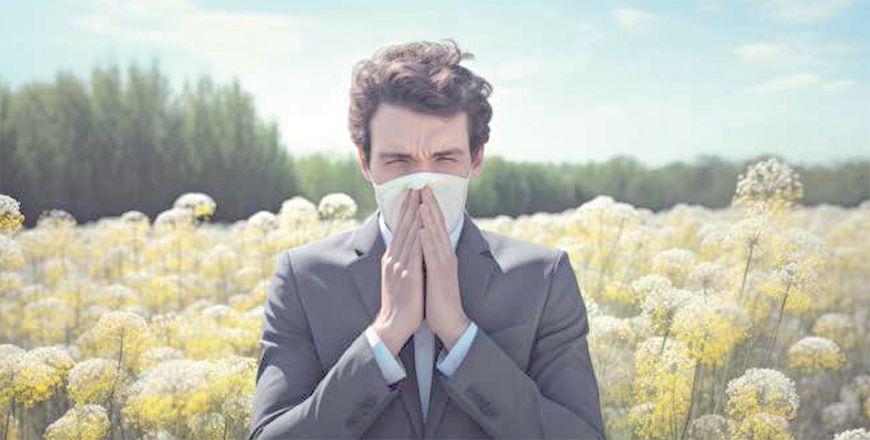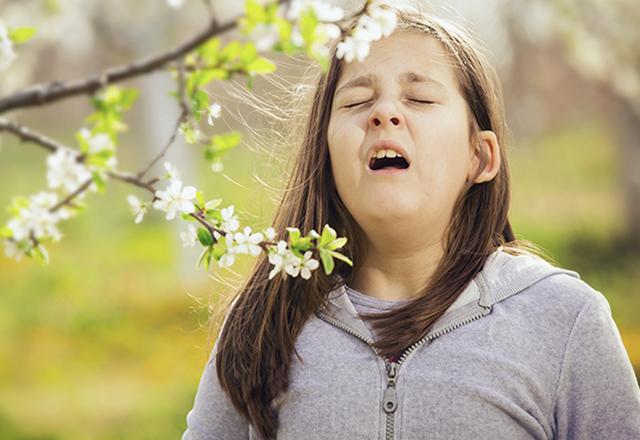You are here
Seasonal allergies or a cold?
By AFP - Nov 26,2017 - Last updated at Nov 26,2017

NEW YORK — As we move into colder months you may find yourself sneezing and sniffling a little bit more, but how do you know if you have allergies, or a cold or flu?
University of Alabama at Birmingham ear, nose and throat specialist Do-Yeon Cho, MD has outlined how to tell the difference so you can prevent and treat fall allergies effectively.
Know your symptoms
Runny nose, stuffy nose, and congestion are all crossover symptoms between allergies and the flu that can make it difficult to tell them apart, however, flu symptoms tend to be more severe and can include headache, fatigue, general aches and pains, and a high fever that lasts three to four days.
Check how long symptoms last
Allergies also tend to last longer than a cold or the flu, with Cho explaining that, “Colds and flu rarely last beyond two weeks. Allergy symptoms usually last as long as you’re exposed to the allergen, which may be about six weeks during pollen seasons in the spring, summer or fall.”
Be aware of the causes
Every season brings different allergens, with Cho recommending a visit to an ENT or allergist for simple skin tests or blood work to find out what might be your triggers.
He adds that common fall triggers include smoke from fireplaces, candy ingredients, pine trees and wreaths, pollen from weeds, mould spores, which can grow not only in damp bathrooms and basements but even in wet piles of autumn leaves, and dust mites, which can be stirred into the air the first time someone turns on their central heat in the colder season.
Take steps to prevent
Cho advises consulting with an ENT or allergist to come up with the most effective plan to avoid flare-ups.
However, precautions you can take on a daily basis include limiting outdoor activities when pollen counts are high, taking allergy medication before pollen season begins to prevent the body from releasing histamines and other chemicals that cause allergic symptoms, using high-efficiency particulate absorbance (HEPA) air filters to help reduce exposure to allergens, and maintaining levels of cleanliness to prevent allergic reactions. This includes showering and shampooing daily before going to bed, washing bedding in hot, soapy water and drying clothes in a clothes dryer, not on an outdoor line. Cho also recommends changing clothes worn for outdoor activities, as pollen and other allergens tend to cling to fabrics.
Find an effective treatment
Fall allergies can often be treated by over-the-counter medications, such as nasal steroid sprays and oral/nasal antihistamines. New studies have also shown that a combination of oral antihistamines and nasal steroid sprays can be even more effective. “Allergy shots are another potential cure for certain allergies and can be useful in controlling allergy symptoms when avoidance measures and medications provide incomplete relief,” adds Cho.
As allergies and treatments can vary from person to person, if over-the-counter medication is not working, consult with an EMT or allergy specialist.
Related Articles
Spring is a time when nature comes to life with all its vibrant colours and beautiful aromas. It is when temperatures begin to climb gradually creating the perfect ambiance for spending time outdoors which adds to the whole positive experience of the season.
School can be a stressful time, especially for children with allergies. Risks of an allergic reaction at school can be greater than at home because it’s more difficult to control the school environment. To help reduce food allergy emergencies at school, start with these tips.
For children under age 12, decongestants might ease the common cold symptoms of a blocked or running nose, but these medications may n


















